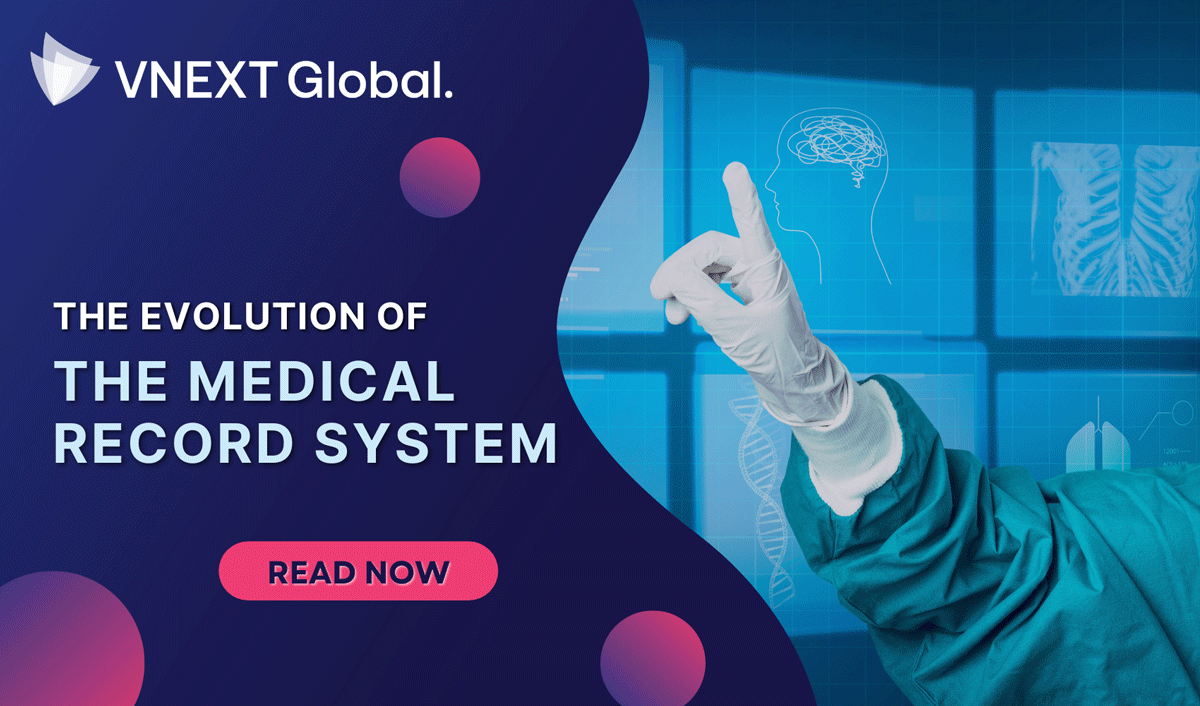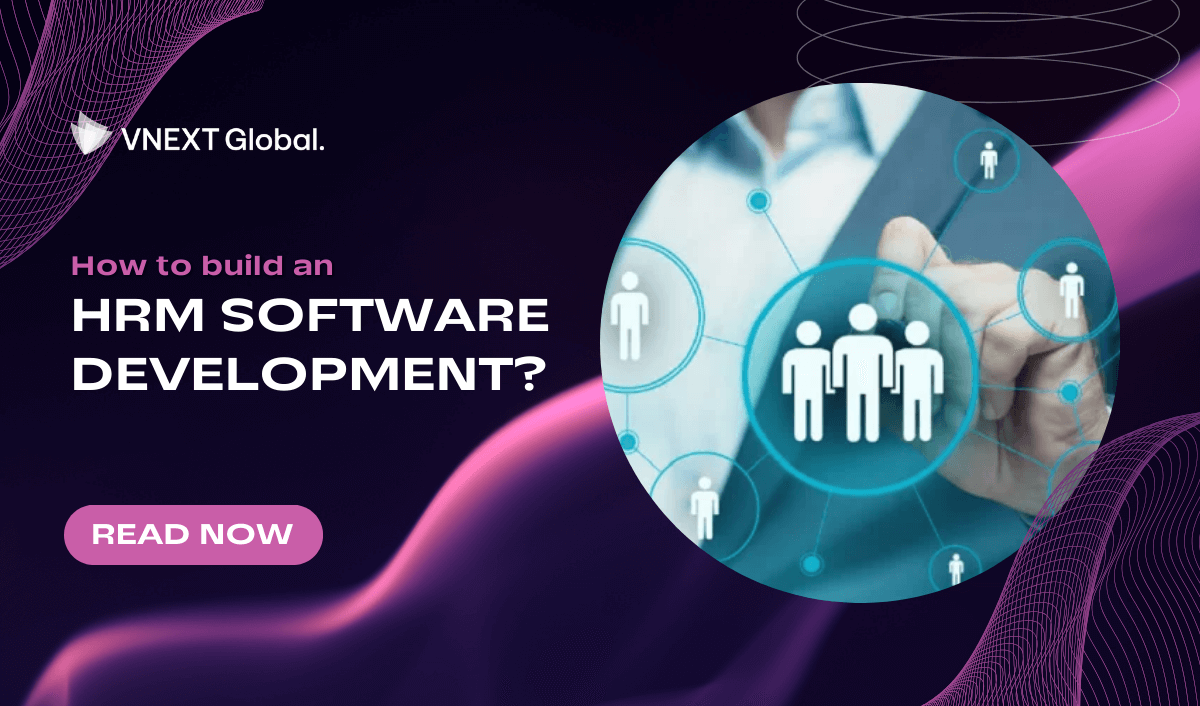The booming of digitalization, intertwined with the outgrowth of big data, has popularized the use of digital record management systems, especially in the healthcare industry. Undoubtedly, the introduction of the Electronic Health Record System (EHR) and Electronic Medical Record (EMR) permits people to view their health histories at a glance and be more active in their own health treatment. At any time, the electronic health record provides patients and clinicians with a safe and secure way to keep and access all of a patient's records online.
In this article, VNEXT Global, a leading software development company in Vietnam, will pave the way through medical records’ history, present, and future.
1. What is the history of medical records and how it has evolved throughout the years?
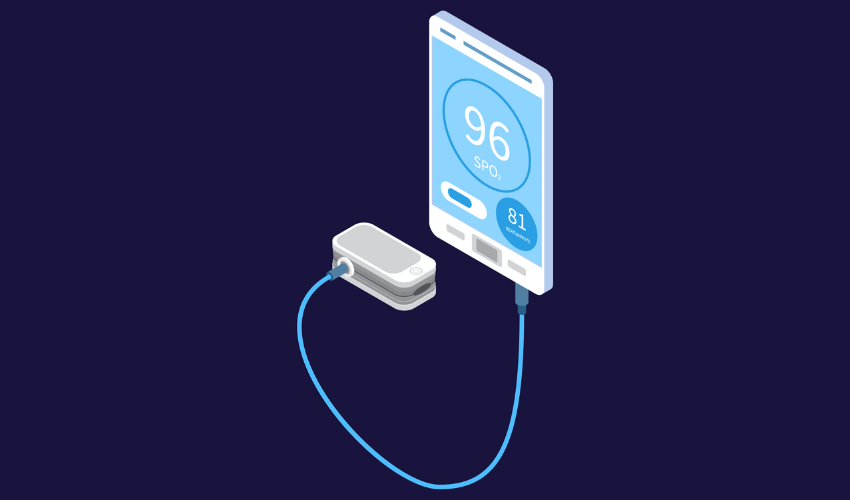
The origins of the medical record sector may be traced to the 1920s when healthcare providers realized that recording patient care was advantageous for both physicians and patients. Patient records establish the details, complications, and outcomes of patient care.
Documentation became wildly popular after healthcare providers realized that they were better able to treat patients with complete and accurate medical histories. The importance of health records for patient safety and experience quality was quickly acknowledged. The term "record librarians" derives from the fact that the earliest medical records were recorded on paper, which explains the origin of the term.
As paper-based records soon became outdated and complicated, huge leaps in healthcare software development were produced in the 1980s. The introduction of digital registration allowed patients to experience a more seamless electronic check-in procedure for the very first time. The introduction of the master patient index (MPI), a database of patient information used across all the departments of a healthcare organization, was also a massive success.
These victories inspired software engineers to continue developing with a fresh emphasis on individual hospital departments. Digital healthcare systems have become more outstanding on the market, because treatments require complicated tactics.
However, these applications still face limitations. Computer applications are being used within healthcare walls, but none of them can communicate with each other or be viewed by neighboring departments.
While the technology developed outside of the healthcare industry, digitalization within healthcare had reached an impasse. The healthcare industry lacked an interdepartmental, communicative electronic record system.
But the turn of the century was going to change everything.
After explaining the origin of medical records in detail, VNEXT Global will describe some types of medical records and give you some informative insights.
2. How many types of medical records?
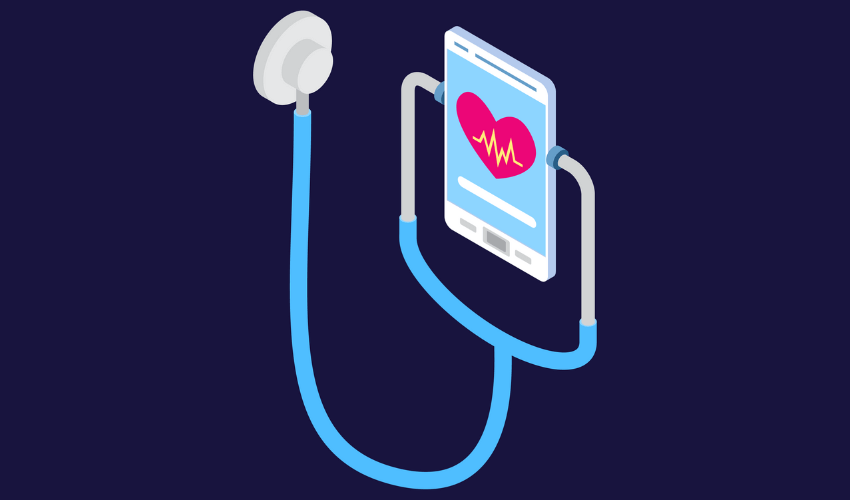
There are three types of medical records that patients and doctors regularly use:
- Personal health record, or also known as PHR
- Electronic medical record, or EMR in abbreviation
- Electronic health record, or EHR in abbreviation
Technically, every medical record you maintain is a personal health record (PHR). You can maintain records:
- Paper document
- On a digital device (a computer or smartphone)
- Within the Internet
But you are most likely to hear the term PHR in reference to online records. Your health plan's website or the website of a nearby hospital may offer free programs for this purpose. And your information is safeguarded so that only authorized individuals can access it.
You can type information into a webpage given by your health plan, which is an advantage. For instance, you can enter the results of home blood pressure testing. And when you visit your doctor for a checkup or therapy, he or she can view the results of your home tests with a few keystrokes.
This information can help your doctor provide you with the best care possible.
Secondly, Electronic Medical Records (EMRs) are digital files that a doctor or other healthcare provider uses in lieu of paper files. The doctor enters the data into a computer. Then, these computer files remain on the computer system of your doctor.
Keeping records on a computer is much simpler than keeping records on paper. In addition, these systems manage scheduling and billing. It is a significant transformation from paper files into electronic ones, so doctors have shifted to this method.
Typically, EMRs are stored on the office computer system. They cannot often be sent to or shared with outside providers, such as a laboratory or hospital.
Finally, Electronic Health Records (EHRs) are designed to be shared with other providers of health care who utilize the same system. With an EHR system, your primary care doctor can immediately transmit your medical records to your heart specialist, hospital, lab, pharmacy, and home computer.
EHRs aim to improve care coordination by providing doctors with accurate, up-to-date information. This consists of patient-detailed information.
3. The application of medical records: Present and Future
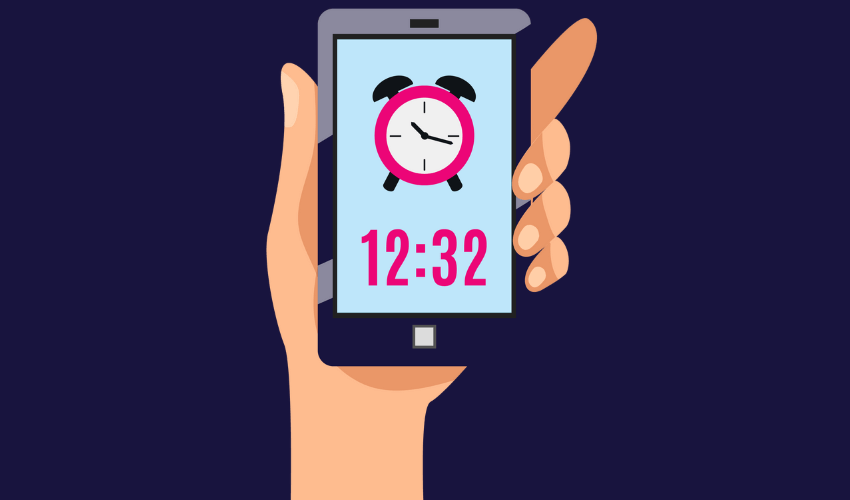
Nowadays, some private offices continue to adopt both paper and electronic medical records. With data technologies becoming increasingly portable and comprehensive, patient records are more accessible than ever. Current developments in the medical records business are geared on the continued specialization of systems to expedite workflows, increase productivity, and enhance doctor-patient interactions.
However, electronic medical records still face two significant obstacles. Obviously, security is the initial challenge. Due to the particular nature of doctor-patient privacy, problems regarding electronic data and privacy have influenced both public policy and the development of private software. For instance, HIPAA regulations were established to address the privacy of patient medical records. Because of this, both the public and private sectors continue to work on making medical records safer in every way.
As we move from the present to the future, the second concern is that many physicians are still dissatisfied with their current EMR software. Specialized outpatient care is one of the largest challenges to EMR satisfaction improvement (Occupational Medicine, Employee Health, Wound Care, and Rehab Therapy). Numerous EMRs on the market employ a simplistic, one-size-fits-all design. From the outside, these generic EMRs appear to perform consistently across all specialties; however, a closer examination reveals that they simply fall short of expectations. For specialized care faculties, one-size-fits-all EMR systems typically cause more issues than they solve. However, there is still hope. Effective design, efficient workflows, and practice-specific documentation enable specialty-specific EMRs to bridge the gap between software and practitioner. Therefore, we can certainly believe in the future of electric medical systems.
Final thoughts
The medical record system has gone through years of transformation and improvement, from paper-based to digital form. During this phase, there have obviously been opportunities and challenges. However, digital medical records have innovated and simplified the healthcare management process. So, if you want to find a trustworthy team to digitize your medical records at the best cost and in the least amount of time, you should carefully choose the best option.
If you are looking for a trusted IT partner, VNEXT Global is the ideal choice. With 14+ years of experience, we surely can help you to optimize your business digitalization within a small budget and short time. Currently, we have 400+ IT consultants and developers in Mobile App, Web App, System Development, Blockchain Development and Testing Services. We have provided solutions to 600+ projects in several industries for clients worldwide. We are willing to become a companion on your way to success. Please tell us when is convenient for you to have an online meeting to discuss this further. Have a nice day!

